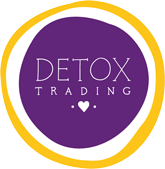Activated charcoal powder is increasingly popular as an alternative to commercial skincare cosmetics, and also as a dietary supplement. Here’s a look at what makes activated charcoal an effective product, and the different ways that you can use it.
What is activated charcoal?
Activated charcoal powder should not be confused with regular charcoal that is used to fuel barbecues or to make art materials. Although all charcoal is essentially a carbon residue, activated charcoal is more often the product of organic coconut shells rather than burned wood or peat.
The coconut shell is heated to very high temperatures in a low-oxygen environment, which leaves a 100 per cent pure carbon residue with no toxic byproducts. This is an essential difference between activated charcoal and regular charcoal, and you should never consider using anything but certified food-grade charcoal powder as a health and beauty product.
Uses of activated charcoal
- As a detoxicant
The process of creating activated charcoal removes all other compounds and creates a multitude of miniscule pores. This makes the charcoal ultra-absorbent and also enables it to bind with other molecules. This is why it has been used for centuries as a remedy for poisoning, because it can trap the toxic substances and clean them out of the body.
Activated charcoal is still used today to treat overdoses, but it is also growing in popularity as a supplement to flush out toxins from the body that can build up over time. Processed foods that most of us include in our diets such as bread and cereals usually contain additives and traces of pollutants such as pesticides and microplastics.
Unfortunately, these pollutants are now increasingly common in fresh foods as well, such as fruit and vegetables and fish. Therefore even people with very healthy diets may benefit from using a detoxing supplement.
- As a digestive aid
Activated charcoal is often used to ease the symptoms of irritable bowel syndrome such as gas and bloating. It is thought to help absorb excess gases and bacteria that are produced as the gut digests food. It may also lessen the symptoms of diarrhoea.
- As a skincare product
Activated charcoal is a popular alternative to regular skin care products, particularly for people with sensitive skin or oily skin. It can potentially absorb impurities and excess oil when mixed with a little water to make a cleanser or face mask. This can leave the skin looking clear and more even-toned without feeling greasy or too dry.
As a tooth whitening agent
Activated charcoal is sometimes used as an alternative to harsher tooth whitening products. It is thought to work by binding with the molecules that cause staining. It is also used as a mouthwash, as some research suggests that it is effective at removing excess bacteria.

